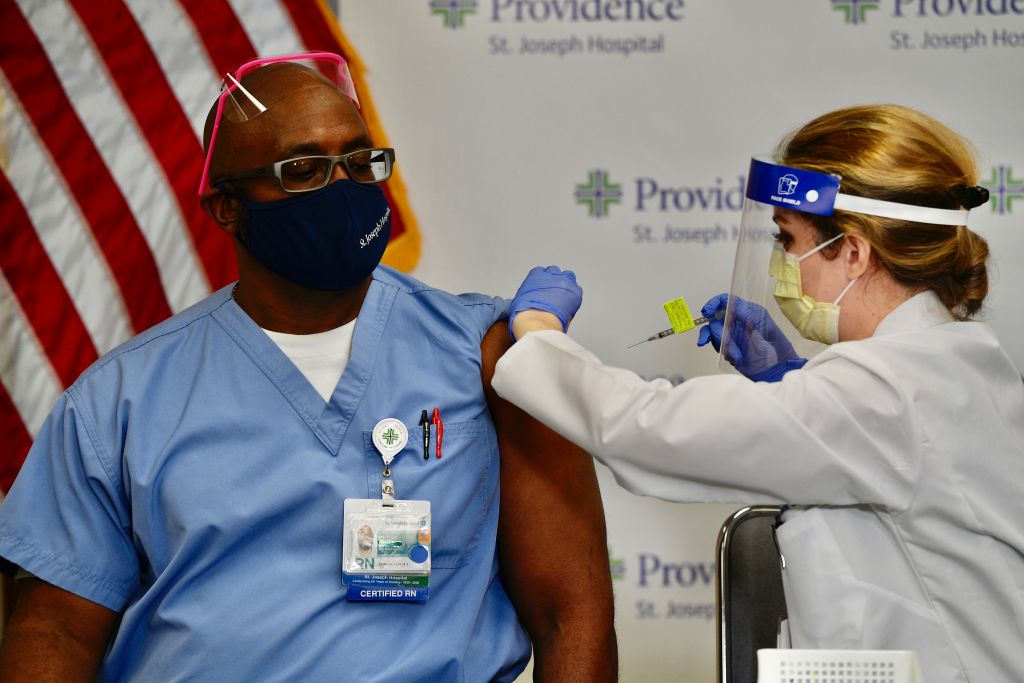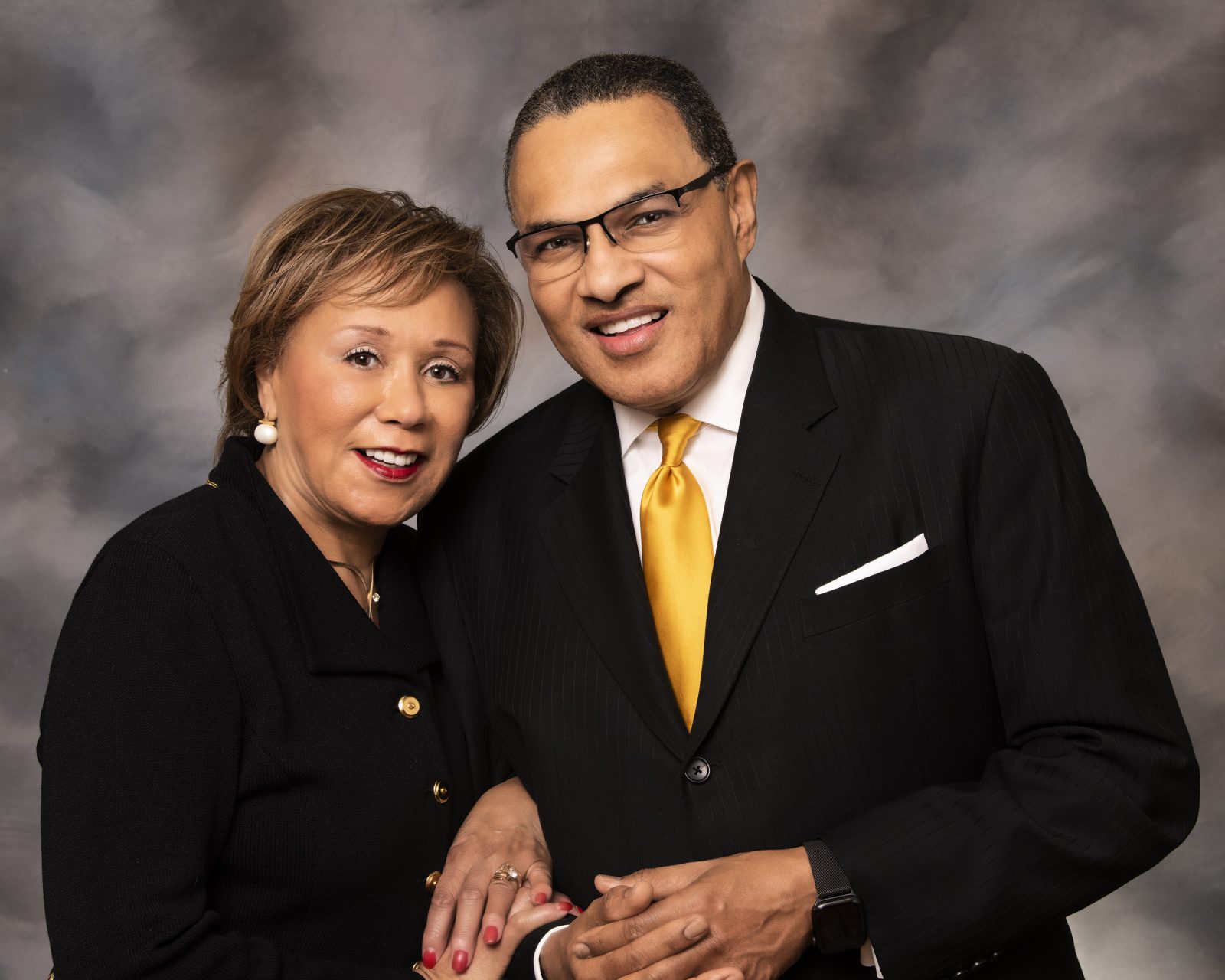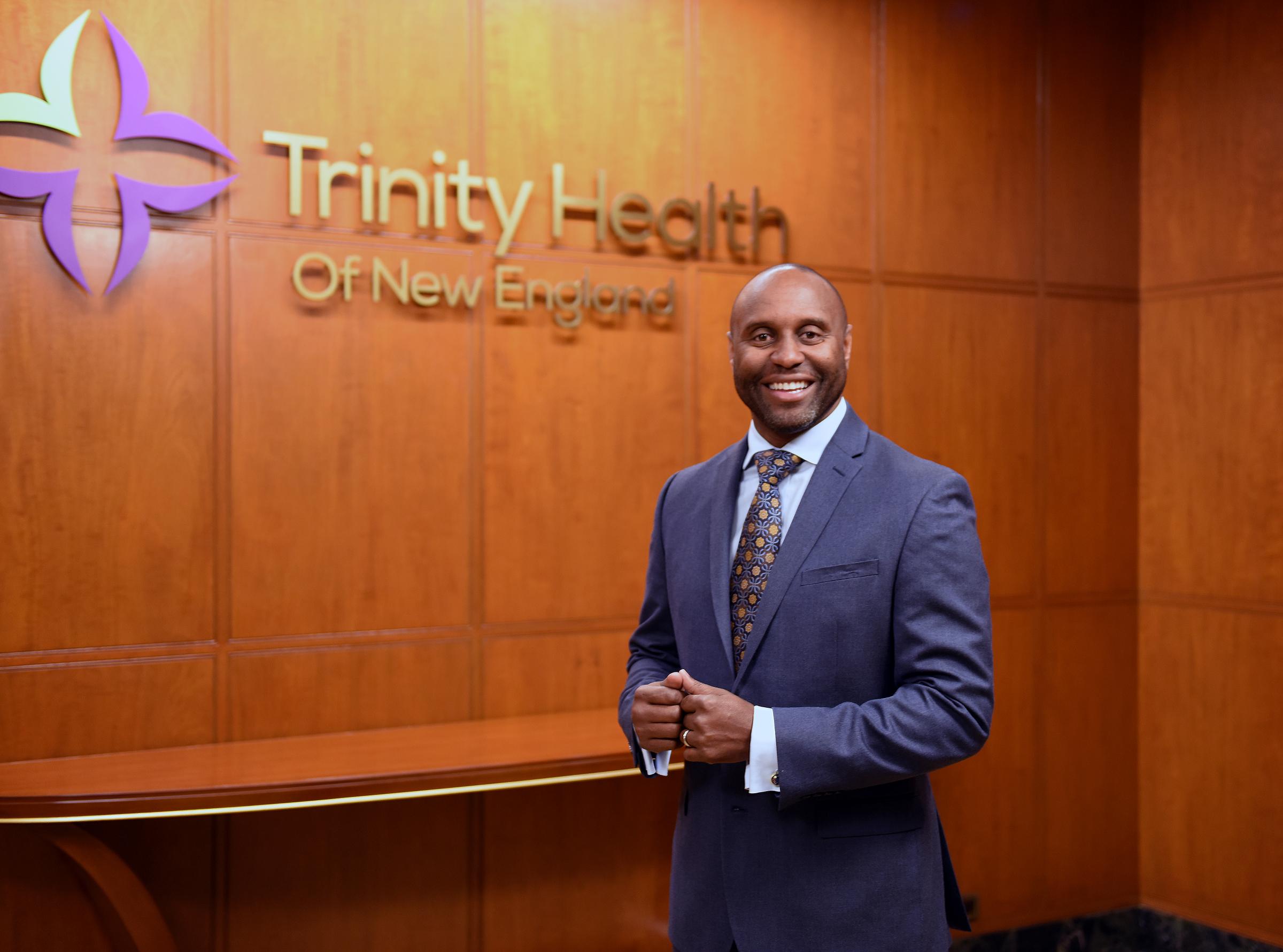
When a COVID-19 vaccine becomes widely available to Americans, Brianna Clarke says she won’t be taking it.
“I don’t trust the vaccine,” the 22-year-old says. “I think it’s too soon to have a vaccine.” Clarke, who lives in Willingboro, N.J., is among a significant number of Black Americans who are skeptical of the healthcare industry in general and, critically, the COVID-19 vaccines recently developed by pharmaceutical companies Pfizer-BioNTech and Moderna, more specifically.
Over the past couple of weeks, the U.S. has averaged in the neighborhood of 200,000 new COVID-19 cases per day, and about 2,500 related deaths, according to data compiled by Johns Hopkins University. Still, many Americans like Clarke are reluctant to get vaccinated.
The rollout of the first authorized coronavirus vaccine, from Pfizer-BioNTech, began on Dec. 14, marking a critical moment in the U.S.’s battle against rising COVID-19 cases. Distribution of Moderna’s vaccine, authorized for emergency use on Dec. 19, began the following week. But for these vaccines to truly turn the tide of the pandemic, there will need to be near universal willingness among Americans to get the shot. There’s still uncertainty about exactly what number of Americans need to be vaccinated to reach so-called “herd immunity”—the level at which the virus will no longer be able to spread through the population—but Dr. Anthony Fauci, the director of the National Institute of Allergy and Infectious Diseases, predicted at a recent Harvard event that the number will need to be somewhere between 75 to 85%.
Meanwhile, there’s a real concern that the distrust public health officials face with Black Americans could impact the country’s ability to reach that goal. According to a late-August/early-September poll by the Kaiser Family Foundation and The Undefeated, some 70% of Black Americans believe that people are treated unfairly based on race or ethnicity when they seek medical care. It’s a feeling born of unequal access to care and intensified by the pandemic, which is disproportionately ravaging Black lives both physically and economically.
Since May, the rate at which the COVID-19 vaccine development process—what the Trump Administration dubbed “Operation Warp Speed”—is taking place has triggered fear and paranoia, particularly among Black Americans, that the ultimate product could be unsafe. Operation Warp Speed has been charged with producing and delivering 300 million doses of a COVID-19 vaccine by January 2021.
The circumstances of the pandemic necessitate a quicker than usual development process, which has fostered misperceptions from many Black Americans that corners are being cut. Having a normally yearslong process of developing and distributing a vaccine telescoped into a matter of months—along with the name Operation Warp Speed—doesn’t instill confidence in many Americans, according Dr. Shirin Mazumder, an infectious disease specialist at Methodist LeBonheur in Memphis, T.N. “In the vaccine development trials, usually a vaccine takes about 15 to 20 years to develop, that’s what’s normal,” says Mazumder. Because of how quickly the COVID-19 vaccines have been developed, she points out “we don’t have long term data. Moderna and Pfizer have short term data, it’s only a couple of months…the long-term data is pending.”
That might be one reason that Americans of color have been less likely to enroll in clinical trials for these vaccines, and others still in development. Of the 350,000 people who’ve registered online for a coronavirus clinical trial, 10% are Black or Latino, according to Dr. Jim Kublin, executive director of operations for the COVID-19 Prevention Network. That’s less than a third of the total U.S. population these two groups account for: 31.9%, according to U.S. Census data from 2019. Further, Centers for Disease Control and Prevention (CDC) data show that more than half of U.S. COVID-19 cases have been among Black and Latino people.
“Like most of the other trials…the white participation just outpaces BIPOC communities. We need to be very proactive and mindful about ensuring that enough spots are allocated to POC so by the time trials are over, we don’t see the vast majority of the spots allocated going to white counterparts only,” says Dr. Michele Andrasik, who works at the COVID-19 Prevention Network, a government pandemic-response group housed in the National Institutes of Health. “It’s about ensuring that we are being transparent, providing accurate information in a timely manner, and we as researchers, as well as a scientific community, are showing that we are trustworthy.”
A poll released by the Kaiser Family Foundation on Dec.15 revealed that among racial and ethnic groups, Black Americans are the most hesitant to get a vaccine, and continue to remain skeptical. In the survey, only 35% of Black adults said they definitely or probably would not get vaccinated, and were more likely than other groups to cite concerns about side effects and the newness of the vaccine. That tracks with the results of a Pew Research Center poll published earlier this month, in which only 42% of Black Americans said they would consider taking the vaccine, compared to 63% of Hispanic and 61% of white adults who would. These surveys come as the nation’s top health leaders urge Black people to trust the vaccine, hosting live events with Black health professionals at the forefront.
In the focus group conducted in early October by Kaiser and The Undefeated, Black participants cited systemic racism for their vaccine hesitancy, noting the infamous, government-backed Tuskegee Syphilis Study. The U.S. Public Health Service Study at Tuskegee began in 1932 with the goal of tracking the damage the disease does to the human body. Without informed consent, the study enrolled 600 Black men, including 399 who had syphilis, according to the CDC. The participants were tricked into believing they were receiving free medical care but were instead just observed for a study of untreated syphilis. The men were told they were being treated for “bad blood,” and did not receive any treatment for their illness—not even after penicillin was found to cure syphilis in the mid-1940s. Dozens died as a result. The study did not end until it was exposed to the press in 1972 and has gone down as one of the nation’s most egregious examples of medical racism.
But medical racism does not end there. Researchers have documented many ways that Black patients are treated differently from white patients in the U.S. For example, in its 2018 annual report, the Agency for Healthcare Research and Quality, part of the U.S. Department Health and Human Services, found that 40% of the measures of healthcare quality the agency assessed were worse for Black people than whites.
Since the era of American slavery, Black people have faced mistreatment from many medical institutions. Like the Tuskegee Syphilis Study, Henrietta Lacks, who died in 1951 of cervical cancer, reflects the profiteering of Black bodies in the name of the advancement of science. Lacks entered Johns Hopkins Hospital seeking medical attention—and not receiving the same standard of care as white Americans. During an exam, her white doctor sampled her cells without her consent. For years, her own family had no knowledge that Lack’s cells were still alive in scientists’ labs, until they eventually discovered that scientists had used those original samples to fuel a cell line called “HeLa cells,” which has generated billions of dollars in pharmaceutical research and development.
“My great grandmother and my family is one of the most well-known examples of what happens to African Americans in a medical industry, in reference to how we feel about our mistrust issues,” says Veronica Robinson, Lack’s great-granddaughter. “Because they launched a multi-million-dollar industry, which took 20 years for my family to even learn of, we have never been compensated for it.”
These examples of malpractice are far from forgotten by the Black community. And all the while, the community has suffered incalculable damage due to ongoing and reprehensible health care disparities—which have only been exacerbated by the current pandemic. A November study by the American Heart Association showed that Black and Hispanic people have made up nearly 60% of COVID-19 hospitalizations in the U.S; a disproportionate number that researchers attribute to societal structures reinforcing health disparities among racial and ethnic groups: disparities in socioeconomic status, lack of access to health care, and to Black Americans being more likely to work essential jobs that increase the likelihood of exposure.
Freeman A. Hrabowski III, the president of the University of Maryland at Baltimore County (UMBC), and his wife, Jacqueline, want to change attitudes about the vaccine in the Black community—and save lives. The Hrabowskis, who are Black, participated in a Phase 3 clinical trial for the Moderna Vaccine, conducted by the University of Maryland School of Medicine. “I am from Alabama,” says Hrabowski. “All my life, I knew about what was done to Black men and how they were abused, and the awful tragedy of the Tuskegee experiment. So, I can understand people questioning the motives of people when they talk about the study.”
“But we must believe in the science, in spite of the challenge of our history and the way we’ve been treated. The reason I say that is, what choice do we have? Disproportionately large numbers of Blacks are contracting the disease and are dying. It helps for people to know that there have been people of different backgrounds, different racial backgrounds, in the development of the vaccine.”

As of Dec. 21, participants in ongoing Pfizer-BioNTech vaccine studies are 10% Black or African American, 13% Hispanic, and 4% Asian, according to a company spokesperson. That’s actually relatively representative of the U.S. population, at least compared to the usual make up of drug studies, says Andrasik, of the COVID-19 Prevention Network. “They are not perfect, but they are closer to representing the censuses than the actual disparate impact of COVID.”
While the medical industry insists it is moving with deliberate speed toward diversity and inclusion in experimental drug trials, some say prioritizing racial minorities is unlawful and unethical. “The issues with distributing the vaccine and who should get the vaccine first are really controversial and contentious,” says Jarvis Chen, a social epidemiologist at the Harvard T.H. Chan School of Public Health. “There has been some…debate on whether we should be targeting vaccines by race/ethnicity,”
“On one hand, communities of color have been disproportionately affected,” says Chen. “On the other hand, there’s a lot of discomfort and lack of trust.”
With a limited supply of shots, the deadly virus has turned allocation decisions into an ethical dilemma. There are ongoing concerns about the legal objections to any framework that uses race and ethnicity when determining vaccine allocation and the way it might be interpreted in court. For instance, strict judicial scrutiny would not permit health care workers to skip white people waiting in line for a vaccine in favor of a person of color, as Lawerence Gostin, a professor of global health law at Georgetown University, wrote in October in the Journal of the American Medical Association. Gostin also noted that public health agencies can not legally distribute vaccines to geographic locations based solely on race.
Across all clinical trials, the National Academies of Sciences, Engineering, and Medicine (NASEM) says geographic priority should be given to communities that are high on the CDC’s Social Vulnerability Index, which identifies communities most endangered and in need of support during or after disasters. The index utilizes Census data that takes into account various socioeconomic, demographic, and housing vulnerabilities.
“I dont think it’s about prioritizing one community over the other; it’s about ensuring inclusivity and ensuring equity across the trials,” says Andrasik.
A CDC advisory group voted Dec. 20 that front-line essential workers will be next to recieve COVID-19 vaccines, in part to address racial disparities exposed by the pandemic. States and local governments have tried different strategies to contain the pandemic for months, including shutting down businesses and having people work from home. But a recent report from the Urban Institute indicates such strategies have little protection for communities hit hardest by the virus and who disproportionately hold jobs that must be done in-person. Researchers found that Black, Hispanic, and Indigenous workers are more likely than white workers to have jobs that must be done in-person and in close contact to other employees, putting them at an increased risk of contracting coronavirus.
But allocating vaccines for these at-risk communities doesn’t solve the need to overcome the mistrust of the health care system that for some is deeply rooted. Dr. Reginald Eadie, president and CEO of Trinity Health of New England, says outreach to the Black community will be critical to get increased buy-in to the vaccine. “Otherwise, we would have a community that has unanswered questions and address concerns; a narrative that is directing their decisions and they would, in my opinion, be making a decision that’s not based on the facts,” says Eadie.

Eadie has had frequent conversations with Black American community leaders to explain how the development process works and to address fears of receiving a vaccine that’s being rolled out in record time. “There were more than 200 people who attended our last conversation. We did a survey prior to our presentation, asking people how likely they are to take [the vaccine], and 38% of the audience said yes right away.” But after the conversation, he found that many of those who had said no had changed their mind. That, Eadie says, suggests a path forward: “You need to create ambassadors, then that vaccine hesitancy that communities of color are concerned about will begin to mitigate or disappear.”
More Must-Reads from TIME
- Cybersecurity Experts Are Sounding the Alarm on DOGE
- Meet the 2025 Women of the Year
- The Harsh Truth About Disability Inclusion
- Why Do More Young Adults Have Cancer?
- Colman Domingo Leads With Radical Love
- How to Get Better at Doing Things Alone
- Michelle Zauner Stares Down the Darkness
Contact us at letters@time.com